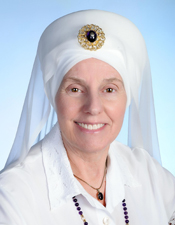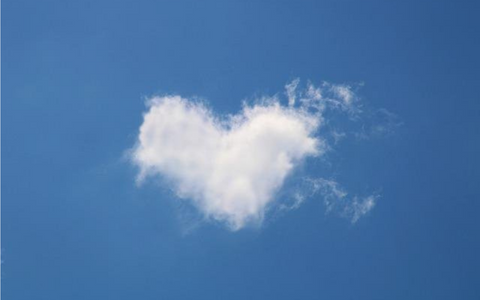Dear Ministers,
Recently I watched an interview between historian and demographer Neil Howe and Tony Robbins. The discussion centered around cycles in human history, with reference to the book The Fourth Turning: An American Prophecy, by Neil Howe and William Strauss. I felt like I got the CliffsNotes version of the authors’ key concept that these cycles are inevitable and predictable, and have shaped and impacted our lives for generations. Although the book was written in 1997, much of what was detailed in it has come to pass with startling accuracy. I was struck by how much of it could be applied to our present circumstances in the Dharma.
Howe and Robbins talked about different seasons (turnings) in the lives of the individual, as well as society as a whole. We are in a “Winter” cycle (characterized by crisis, slowing down, regeneration, and creation of space for new beginnings). It is a time of polarization and economic uncertainty. By recognizing the seasons, one can anticipate the road ahead. Anticipation is power. The authors claim: “Losers react; leaders act.”
I thought of our Ministry and the opportunities we have to be leaders. As I look at what is unfolding around the upcoming SSSC (Siri Singh Sahib Corporation) election, I see many of the elements of “Winter” at play: polar-opposite views as to what needs to be done and how; campaigns to skew the election outcome; further entrenchment of positions; and more alienation of those with different views.
Yet the resources to help us through this time lie within us—through communicating, networking, bonding with friends, chosen family and community. History has shown us that we solve our biggest problems when things are at their worst. Crisis is how we transform. Trying to convince each other of our point of view will only deepen frustration and further divide us.
I keep looking for what unites us. What are our common touchstones? Most certainly the Guru—that which takes us from darkness to light. Also: doing seva together; chanting as a sangat; practicing our yogic technology; doing sadhana; and singing mantras and kirtan.
“May we unite in love.” These words, spoken during last Sunday Gurdwara’s Ardas, touched me deeply. Can we express love for each other again? Can we communicate with kindness that invites compassion, understanding, and tolerance for our differences? Can we hear each other? Can we utilize the tools we have been given to uplift our spirits rather than use them as weapons against those who think differently from ourselves? Our diversity is essential and so is our ability to be inclusive and foster harmony in our sangats. Are we really the people of love? If so, then let us love today. Is it a cliché? I surely hope not!
As Ministers, can we help heal our Dharma or are we contributing to the upheaval at this time? Is there a way to heal without necessarily agreeing with each other? I believe there is a way through every block. It is critical that we collectively find that now.
May God and Guru ever guide you in your service as a Sikh Dharma International Minister.
Humbly,
SS Dr. Sat-Kaur Khalsa
Secretary of Religion
THE SECRETARY OF RELIGION
 SS Dr. Sat Kaur Khalsa has served as Secretary of Religion since 1991 and was ordained as a Sikh Dharma Minister in 1975. As Secretary of Religion, Dr. Sat Kaur oversees and is ultimately responsible for the delivery of the functions of this Office. Dr. Sat Kaur is a long-time member of the International Khalsa Council and the Khalsa Council Executive Committee. She maintains a full-time psychotherapy tele-health private practice in California and New Mexico, counseling individuals, couples, and families to support their personal and spiritual growth. She is a certified Kundalini Yoga teacher, a facilitator of White Tantric Yoga®, and a published author.
SS Dr. Sat Kaur Khalsa has served as Secretary of Religion since 1991 and was ordained as a Sikh Dharma Minister in 1975. As Secretary of Religion, Dr. Sat Kaur oversees and is ultimately responsible for the delivery of the functions of this Office. Dr. Sat Kaur is a long-time member of the International Khalsa Council and the Khalsa Council Executive Committee. She maintains a full-time psychotherapy tele-health private practice in California and New Mexico, counseling individuals, couples, and families to support their personal and spiritual growth. She is a certified Kundalini Yoga teacher, a facilitator of White Tantric Yoga®, and a published author.


